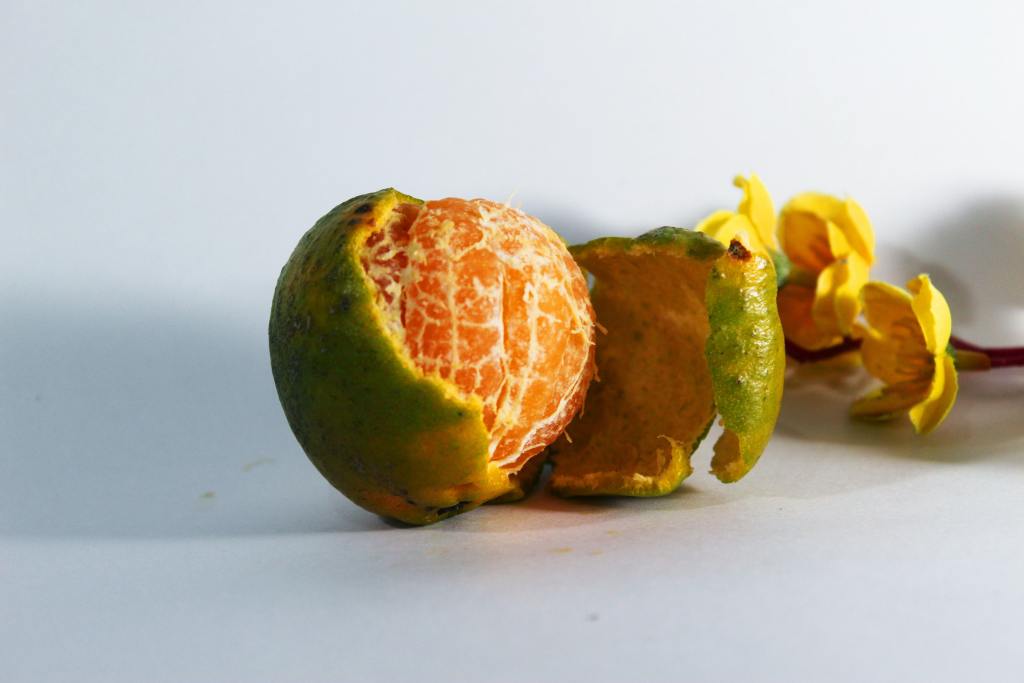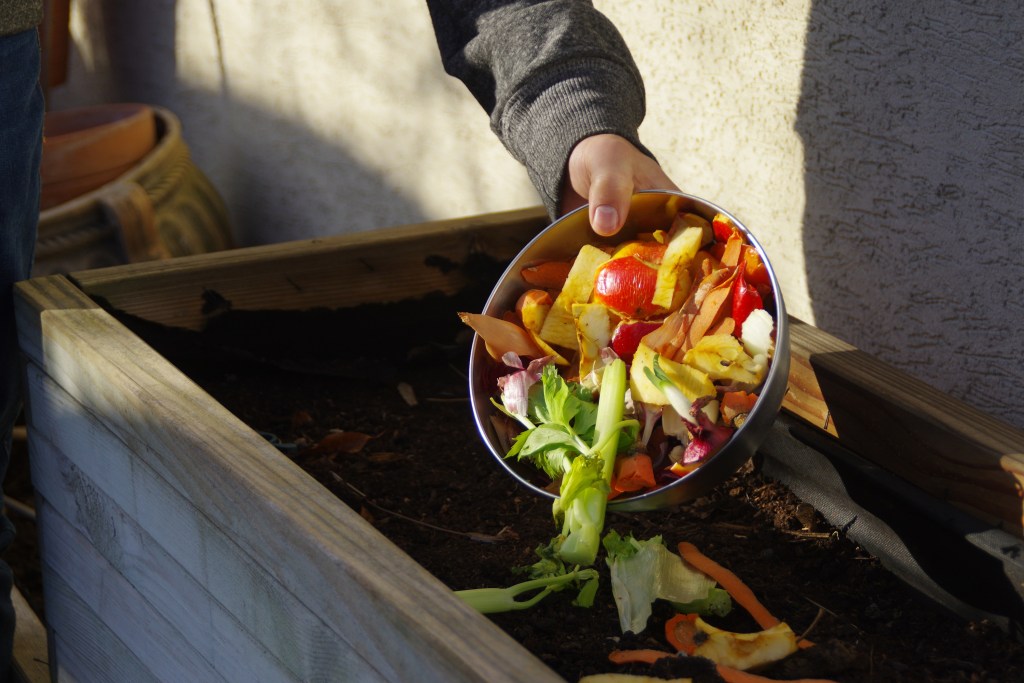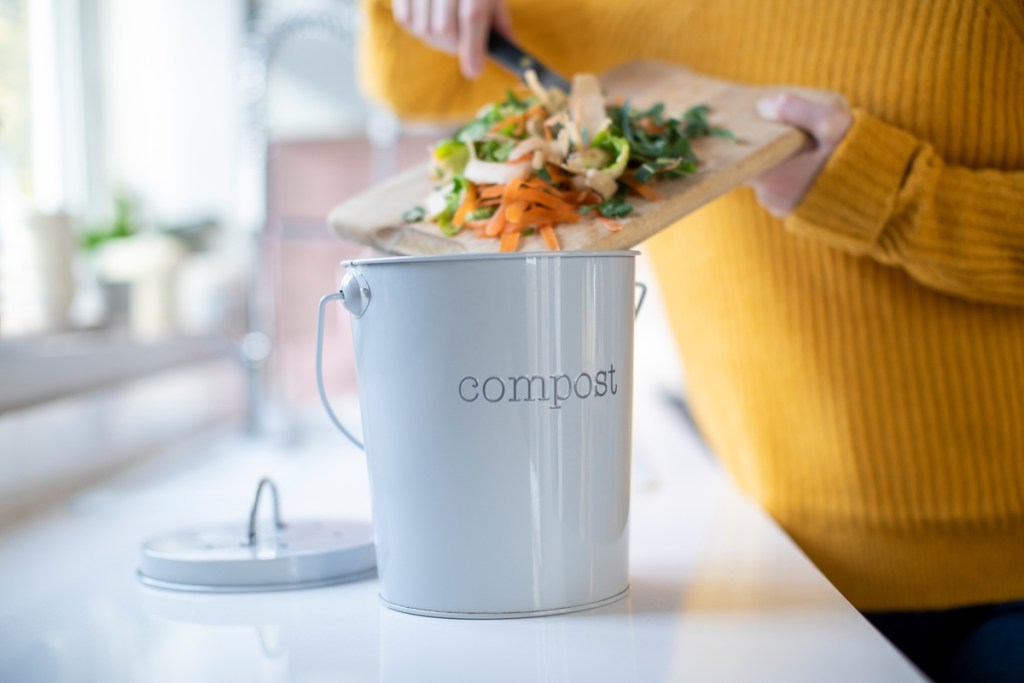For many years gardeners have been led to believe that composting citrus is a bad idea, and they’ve been very open about sharing the advice. The two major reasons that have been given –– that citrus peels are bad for the composting microbes and take too long to break down –– have been perpetuated too long.
The truth is that orange peels and other citrus are not unsafe for composting systems. In fact, they can actually boost the quality of the finished product! As for timing, that’s no problem either. If you want to learn the truth about composting orange peels, this guide is for you.

Are volatile citrus compounds a problem?
It’s true that citrus fruits such as oranges, lemons, grapefruits, and the like are highly acidic and loaded with useful compounds. One such compound, d-limonene, is the main volatile component of orange peel oil. It’s a well-known environmentally friendly ingredient used in some cleaners, degreasers, and insect killers. Therein lies some of the confusion.
D-limonene is highly effective at killing fleas, ticks, mosquitoes, flies, ants, and other pests on contact and at low concentrations (between 5 and 10 percent). However, before it has that kind of killing power, it has to be extracted from citrus oil, which must first be extracted from the citrus peel. Simply put, kitchen scraps don’t deliver enough of the stuff to cause a problem, and even if they did, the volatile compound would evaporate too quickly to cause measurable damage.

Orange peels decompose slowly, but you can help
Tough, leathery citrus peels can take a while to decompose. The average decomposition time for citrus peel is about six months. Not only does the size and texture of the skin resist decomposition, but these fruits are treated with a film of wax to resist mold while in storage. So, there could be some value to this argument.
However, the wax that’s used to protect the fruit breaks down quickly once it’s been compromised by peeling the orange. And, by tearing or cutting the peels into smaller pieces, you create more surface that can be colonized by molds and bacteria. Doing so speeds up the composting process.

Composting citrus
Sometimes an orange goes bad while it’s on the countertop. It turns moldy and smells really bad. Some gardeners don’t like the idea of introducing penicillium mold into the compost pile, since the mold could theoretically kill off many of the beneficial microbes in the pile. However, this is also an unnecessary worry.
This damaging mold requires a cool, damp, dark environment with temperatures from just above freezing to about room temperature. Composting happens in a hot, moist environment at temperatures ranging between 120 and 160 degrees Fahrenheit. A well-tended compost pile is far too hot for dangerous molds to survive.

Benefits of composting citrus
So, it’s true that citrus compounds are used in bug killers, they can harbor mold spores, and the skins are relatively slow to break down. However, none of these characteristics are problematic for composting. In fact, including citrus fruit scraps in the compost can be beneficial.
Citrus peels offer plant nutrients
Citrus peels hold beneficial quantities of nitrogen, phosphorus, potassium, calcium, magnesium, sulfur, and other plant nutrients. When the fruit waste is added to the compost pile, its nitrogen content is the fuel for decomposers that work to break it down. Although it visibly changes form, much of the added nutrient value remains in the finished compost.
Composting citrus is environmentally friendly
Composting citrus is also good for the environment. Any time we can recycle organic waste into a rich soil amendment for the garden instead of sending it to the landfill, it’s a win.

One small word of caution
While it’s entirely acceptable, and should be encouraged, to compost household citrus waste, too much is too much. Balance is the key to making high-quality compost. If you make a gallon of fresh-squeezed lemonade five or six times each week, you may be generating an excessive amount of citrus waste for your composting system to efficiently break down.
Gardeners and composting gurus have advised against adding oranges and other citrus fruits to composting systems for a long time. It appears that their concerns, although reasonable, have been mostly misplaced. Moderate amounts of citrus scraps can indeed be safely composted, and may actually help to improve the end product. So the next time someone asks, “Can you compost orange peels?” you’ll be ready with the answer!
Editors' Recommendations
- 3 incredible reasons why you should be using coffee grounds in your garden
- Can you leave beets in the ground over winter? Here’s what to know about storing beets for winter
- How often should you turn your compost pile? What you need to know
- Is Epsom salt good for controlling garden pests?
- Complete guide to red thread lawn disease: How to keep your yard lush and green




